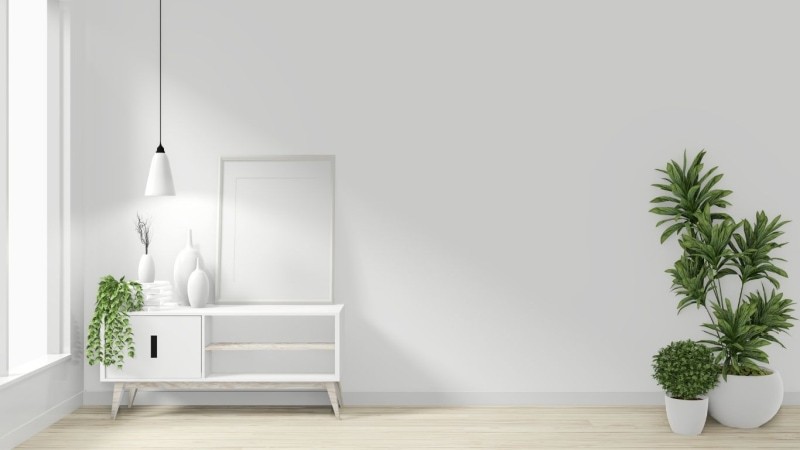Minimalism, while long known in the arts, is a relatively young creation in this art of living and not always popular. This is because it stands in opposition to consumerism, which is the model of the 21st century. What does it mean to live in minimalism? Does it mean renouncing pleasure? How to implement minimalism in life? We answer these and many other questions in today’s article.
Minimalism a time for less
Minimalism is defined, as an ideology and a certain lifestyle that aims to reduce the number of objects owned. It is about living a simpler life without an excess of unnecessary things and without indulging in impulsive purchases. People who practice minimalism are content with what they have and do not try to compare themselves with other people. It is a form of gratitude for what we already have by focusing on what is important. A minimalist does not indulge in compulsive shopping, influenced by advertisements or fashion for a particular product. Very often minimalism goes hand in hand with an ecological attitude, and thus Zero Waste. Taking care of the environment and shopping consciously is an important part of such a lifestyle. Since minimalists do not fall into compulsive spending, such a philosophy also serves to save money. They also find it easier to balance their spending by not being susceptible to manipulation, giving up television and even social media, which tempts with a variety of products and services. So is the life of minimalists boring? No. They find pleasure in communing with nature, spending time with loved ones and mindfulness practiced by slowlife. After all, anti-consumerism does not exclude pleasure and passion.

Minimalism at home
How to introduce minimalism into your life? Where do you start? It doesn’t have to be a multi-faceted change right away – and not so big at all. Over time, you’ll determine for yourself whether you want to introduce minimalism into more areas of your life, or stop with what you’ve already done. Here are some tips on how to start changing your lifestyle, to a more mini one.
- Determine your goal – that is, choose the area of your life where you want to introduce minimalism. This could be, for example: your home, your closet of clothes, your relationships with people, your work, your shopping. Many people start with a tidy closet, so we will focus on this example.
- Minimalism in the closet: pull out all the clothes you have and see what you really need and what is just occupying the hanger. If you do a solid cleanup of your closet, you may find clothes you hardly or never use. Some of them will turn out to be useful, and you will thus abandon your next clothing purchases. The clothes you want to get rid of can be given away to friends or people in need, or you can simply put them up at second-hand clothing shares.
- Refrain from your next purchases for at least a month.
Your minimalism can extend to every aspect of your life and even your appliances. You can do a tidy up on your laptop or phone – delete unnecessary apps, photos and other things that we unnecessarily keep on disk, that is, that we simply don’t use.
Minimalism – what about pleasures?
It may seem that minimalism means giving up pleasures. If that were the case, we would be writing about asceticism, while it is simply about curbing excessive, mindless, compulsive spending and accumulating things we don’t use. Minimalists are also not stingy, they are simply careful and pay attention to what they spend money on. This allows them to save funds for, say, a dream vacation. And it’s not that they live poor and eat modestly – they are simply conscious consumers. Some minimalists limit themselves to having 100 items – including clothes. Is this, a lot or little? If we tend to hoard, certainly the number 100 is small. However, if we start to give up excess items gradually, we may find that 100 is even a lot. The approach changes with practice.
Minimalism in everyday life
How to practice minimalism in everyday life? If you are a bookworm, admit honestly, how many books that you own have you read? Don’t you have a pile that is still waiting for its turn? How many of the titles in your personal library have you read more than once? Do you really need all these things? Instead of buying books, why not start renting them or opt for an e-book reader? What about food shopping? Do you shop consciously? It’s a good idea to make a list of what we really need before going to the grocery store – and definitely not to go shopping hungry. Then it’s easier for us to mindlessly throw more things into our shopping cart than we need. With conscious shopping, we waste less food – and thus save more money. Minimalism is simply being sensible and knowing what we really need. Because do we need several packages on movie platforms? Do you regularly use them all? A minimalist approach is to pay attention to one’s needs, which are really realized – not for someday or never.
Minimalists are not scroungers or ascetics, but people who don’t follow fleeting fads and enjoy new things for literally a few minutes. Usually it is the very moment of shopping that makes us happier – but this happiness, quickly passes. Minimalists are able to focus on what is really important to them. They save time, money and have more freedom to make conscious decisions – not only related to consumerism, but many aspects of life. Minimalism is, we emphasize, being more aware of one’s needs, not the needs of what the world thinks will make us happy.

